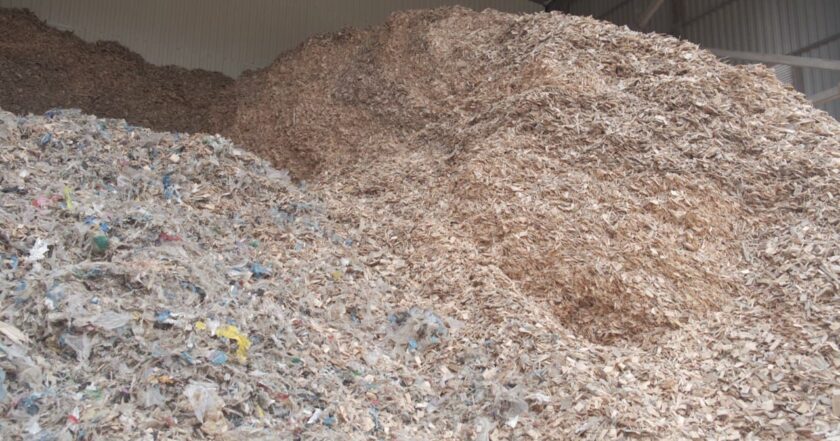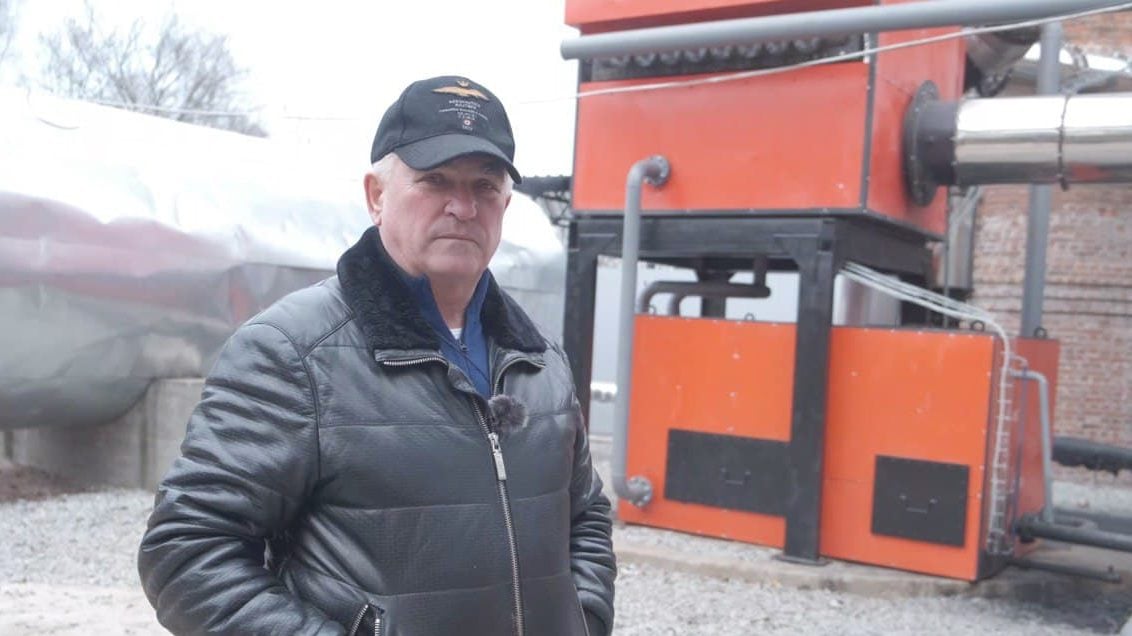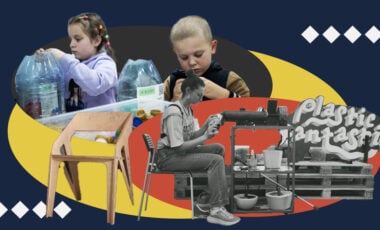How Zhytomyr region turns trash and "coronavirus waste" into energy
The boiler house in Zhytomyr uses wood processing waste, wood chips, and... bags and diapers! In the meantime, it emits only pure steam into the air. How the device, innovative for the entire CIS space, works, we'll explain to you in our EcoRubric material

The waste issue becomes more acute each year: recycling isn't always possible and, more so, is undeveloped in Ukraine; and the amount of garbage is growing. But in Zhytomyr, in December 2020, they launched a project both allowing to unload landfills and generating energy from waste, making heating in the city cheaper. This refers to the boiler house of the Kriger boiler plant, a unique device not only for Ukraine but also for the entire CIS territory. Using residential solid waste as fuel is an innovation that could interest every city.
The boiler house runs on a mixture of wood chips and RDF. RDF is sorted solid household waste that cannot be recycled any further, such as colored cellophane, diapers, soggy paper. Now the mixture is composed in a 25/75 ratio, but in the future, they plan to switch to a 50/50 mixture.
Now the boiler house heats the regional psychiatric hospital, where it's located. In the future, the energy from such devices can provide heating of schools, hospitals, public utilities, and living space. "Today, such a boiler house can provide heat energy to 25 thousand square meters of housing or, for example, educational, hospital institutions," Leonid Kriher, director of a plant, producing eco-friendly boilers.
Watch our report from the plant:
How the boiler house works
Disposing of RDF in this manner means answering a real problem: all over the world, RDF is already creating a huge disposal issue. You can get RDF only after sorting garbage: separating it from everything that can be recycled. "Waste sorting is the starting point for a product like RDF emerging and becoming a fuel," Leonid Kriher says. "Its calorific value is 4.5 megajoules, while ordinary wood chips provide 2 megajoules. Imagine what great efficiency!"
So far, Zhytomyr doesn't have its own sorting plant, and RDF is brought to the boiler house from Illintsi, Vynnytsia region. They're glad of such cooperation there, otherwise, such a sorting product like RDF will simply have nowhere to be ecologically recycled at. One small Kriher boiler house can utilize 8000 tons of RDF per year.
Incidentally, now Ukraine is changing legislation: RDF is recognized as one of the fuel types. It's a significant victory for such projects and the environment, because, from the moment the changes come into force, it'll be possible to start replacing coal and gas, traditional energy sources that have a detrimental effect on the environment, with RDF.
Besides the fact that this method of generating energy helps to get rid of non-recyclable waste that would otherwise simply remain in landfills, it's environmentally friendly and safe. If conventional CHP plants are severe environmental pollutants, throwing fuel (coal) combustion products into the air, then with the Kriher installation, only water vapor is released into the air thanks to a special purification system.
Another feature of this device is that it can actually operate on any biofuel: husk, seeds, peat. However, it's the use of RDF as a fuel that solves two problems at once: a waste issue and energy efficiency.
Such technology can appear in every city, as Leonid Kriher says, because waste is everywhere, for instance, in a system of educational and medical institutions, which could benefit from a separate boiler plant fueled by RDF.
Medical waste energy
With the onset of the coronavirus crisis, the capacity of hospitals has become insufficient to dispose of all hazardous waste. Therefore, the boiler house also burns medical waste, brought here from all over the Zhytomyr region.
"Today, regional medical institutions produce up to a thousand tons of medical waste. Previously, the waste was buried in the usual way, in a landfill. Or such waste is dissolved by companies having licenses for disposal, but not real capacities and equipment," Leonid Kriher told us.
The Kriher installation can process 170 kg of medical waste per hour. In a year, it can accept and convert into energy 1000 tons of medical waste from not only Zhytomyr region hospitals not but also from all over Ukraine. Everything is run in compliance with environmental standards and heat production.
How to scale such a solution?
Energy from garbage without negative consequences is more than a tempting offer. However, this requires special equipment, a filtration system, and unique technology. Purchasing a boiler, installing it, staff training, and maintenance currently cost 700 thousand dollars.
Other countries are already interested in buying such equipment from a Ukrainian manufacturer. Moreover, the Kriger boiler plant has a significant experience of expanding to foreign markets; boilers are mainly bought in the UK and EU countries. However, the creator of the boiler house believes that Ukraine will also be interested in the solution. "Ukraine can provide itself with alternative sources in compliance with environmental standards. That's not unspeakable money as the representatives of other states inform us. We can do everything in Ukraine, ourselves," Leonid Kriher is sure.
























































